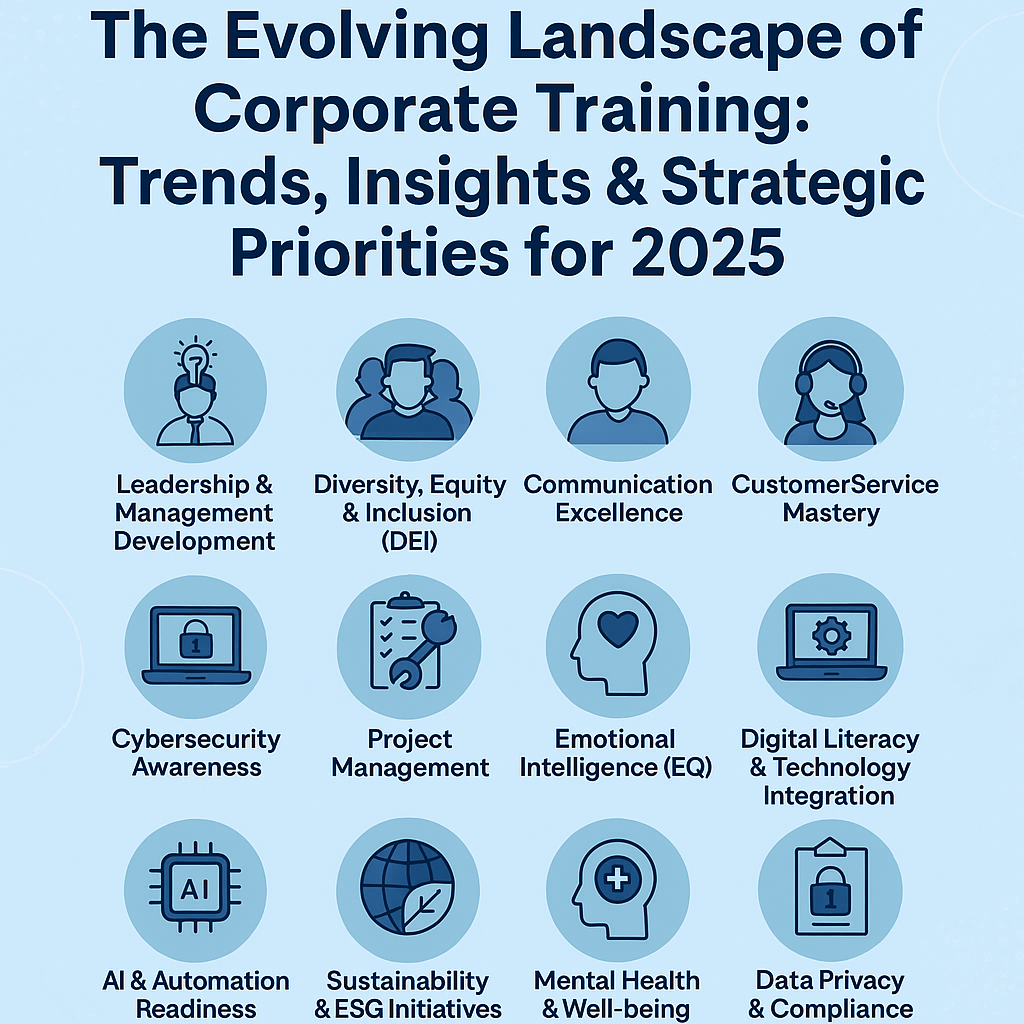The Evolving Landscape of Corporate Training: Trends, Insights & Strategic Priorities for 2025
In a rapidly shifting corporate environment, employee training is more than a nice-to-have—it’s a business imperative. A recent Ipsos study for Axonify underscores what modern workers value most: intuitive learning experiences (93%), tailored content (91%), engaging delivery (90%), and accessibility from any device or location (89%). Furthermore, 88% of professionals want training that applies directly to real-world scenarios. Employees increasingly seek flexibility, with many preferring to schedule their own sessions (85%), receive consistent training updates (80%), and be compensated for their time (86%). Compared to previous years, there’s a clear upward trend in the demand for personalized, accessible, and impactful training. The data speaks volumes: corporate learning initiatives that meet these evolving expectations are not just a cost—they’re a competitive edge. So what are the most in-demand training topics shaping the future of work? Let’s explore the current frontrunners.Top Corporate Training Topics in 2025
1. Leadership & Management Development
In an age of constant change and disruption, cultivating effective leadership is essential. Modern leadership programs go beyond theory, equipping managers with practical skills in decision-making, delegation, change management, and performance coaching.2. Diversity, Equity & Inclusion (DEI)
DEI training promotes awareness of unconscious bias, fosters equity, and strengthens inclusion across the organization. It empowers diverse perspectives to thrive, leading to greater innovation and profitability.3. Communication Excellence
Effective communication boosts collaboration, reduces misunderstandings, and helps build stronger, more cohesive teams. It is essential for innovation and leadership success.4. Customer Service Mastery
Customer service training enhances satisfaction, loyalty, and brand reputation. It teaches employees how to handle complaints, resolve issues, and create memorable service experiences.5. Cybersecurity Awareness
With cyber threats on the rise, employees need to be trained to identify risks, protect sensitive data, and maintain a culture of digital security across the organization.6. Project Management
Training in project management methodologies helps teams plan, execute, and deliver initiatives successfully—on time, within budget, and aligned with strategic goals.7. Emotional Intelligence (EQ)
EQ training enhances self-awareness, empathy, and relationship management. It’s a crucial factor in team dynamics, conflict resolution, and leadership development.8. Digital Literacy & Technology Integration
From cloud tools to data analytics, digital literacy ensures your team can thrive in a tech-enabled workplace. This training builds agility and supports digital transformation.9. AI & Automation Readiness
Understanding AI is no longer optional. Training equips employees to leverage automation, improve productivity, and contribute to innovation strategies.10. Sustainability & ESG Initiatives
Environmental, Social, and Governance (ESG) training aligns teams with corporate responsibility goals and enhances investor confidence and customer trust.11. Mental Health & Well-being
Well-being programs improve morale, reduce burnout, and create a supportive work environment that fosters engagement and loyalty.12. Data Privacy & Compliance
As regulations tighten, training ensures your team understands how to safeguard data, reduce risk, and maintain compliance with global standards.Why Corporate Training Matters
- Builds In-Demand Skills: Helps staff stay current and effective.
- Boosts Morale & Retention: Shows employees they’re valued.
- Fuels Innovation: Encourages creative problem-solving.
- Supports Career Growth: Opens paths to advancement.
- Ensures Legal Compliance: Minimizes legal and reputational risks.
How to Choose the Right Training Topics
- Align with Goals: Focus on skills that support strategic objectives.
- Identify Skill Gaps: Use feedback and performance reviews.
- Support Career Development: Help staff grow in their roles.
- Track Industry Trends: Keep training modern and competitive.
- Maintain Compliance: Stay ahead of legal obligations.
- Use Feedback: Improve based on employee input.



